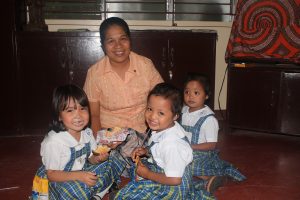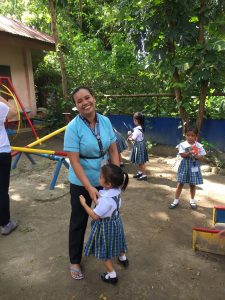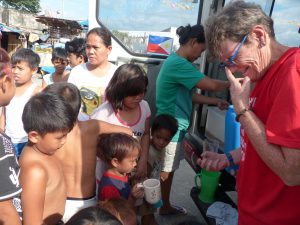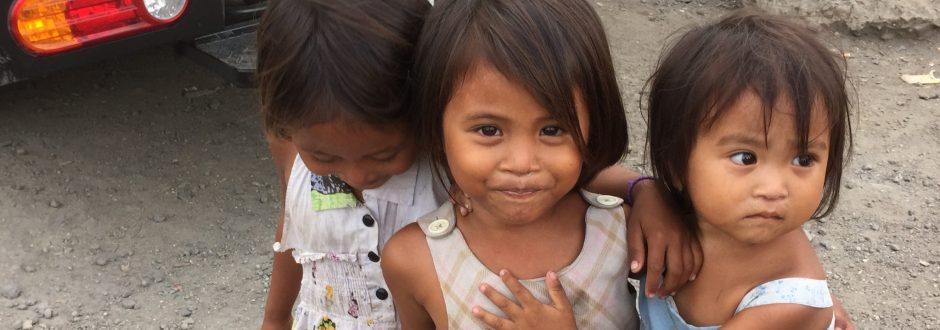The 500th anniversary of the arrival of Christianity in the Philippines has sparked mixed emotions among many Filipinos, including some Sisters of the Good Samaritan who spoke to Debra Vermeer.
The faith which has been such a mainstay of the people was brought to the country by the colonising Spaniards.
Sister Leonie Dueñas SGS says some of her country-folk have asked if there is a reason to celebrate. But she believes the celebration allows recognition of the faith that is now integral to the Philippines, alongside an opportunity to remember and mourn the losses brought by colonisation.

“In what I’ve read, different sectors remind the state to take into account that 81 per cent of the population are Catholics,” she says. “The government that ignores this celebration forgets that Christianity or Catholicism is an integral part of the history and culture in the Philippines.
“Christianity and colonisation came together. The cross came with the sword and canon.”
Catholicism came to the Philippines with the European discovery of the archipelago. The explorer Ferdinand Magellan set foot on the islands in 1521 and planted the cross on the island of Cebu, cradle of Christianity in the Philippines. There, he spearheaded the conversion of Rajah Humabon and his consort Harah Amihan, who took the baptismal names Carlos and Juana (after the Spanish king and queen mother). This happened within weeks of the offering of the first Mass in the islands by Fr Pedro de Valderrama, chaplain of the voyage, on March 31, 1521.
The evangelisation of the Philippines began with the arrival of the conquistador Miguel Lopez de Legazpi in Cebu on April 27, 1565. The Augustinian friars who came with Legazpi, led by Fr Andres de Urnadeta, built a church and convent in honour of the Santo Niño in Cebu.
In 1571, they went with Legazpi as he conquered Manila and turned the then bustling Muslim settlement into the walled capital of the new Spanish colony. For 13 years the Augustinians were alone in the missionary effort.
The Franciscans arrived in 1578, followed by the Jesuits in 1581. The Dominican mission arrived in 1587. Since then, the Church has played an important role not only in spreading the faith, but providing health, education and social support initiatives.
Leonie says she has mixed emotions about the celebration.
“I remember with deep sadness the pains and sufferings of the natives (Filipinos) because of the abuses and oppressions of the Spaniards,” she says.
“But with this, I remember too, with a grateful heart, the plight of our first native priests – Fathers Gomez, Burgos and Zamora – and our heroes like Rizal and Bonifacio who offered their lives for the liberation of the oppressed people.
“They served for me as my inspiration in bringing about justice and equality in our country.”

Sister Grace Marcelo SGS agrees there are mixed feelings with regards to the celebration.
“There are those who are very joyful and grateful for the gift of faith. And those who are saddened because this day marked the start of the dark period of colonisation,” she says.
“The phrase ‘the Sword and the Cross’ is commonly heard when talking about Spanish colonisation in the Philippines. We cannot deny the fact that Christianity was used as an instrument of colonisation.”
She says she is ambivalent about the 500th anniversary celebrations.
“I am certainly happy for the gift of faith that the Spanish brought to our country, but I can’t help but be sad for those who suffered under the hands of Spain,” she says.
“Many died and our own spirituality was disempowered in the name of evangelisation. Christianity led to marginalisation of our non-Christian Filipinos.
“I feel that the Church today is missing in acknowledging this sad reality. In different Masses offered in this celebration there is no mention of those who were killed, raped, abused and oppressed during those days.”
Pope Francis declared a Jubilee Year in the Philippines to mark the anniversary and the Philippines bishops are inviting the people to celebrate under the theme ‘Gifted to Give’.
Leonie says COVID-19 has restricted some of the planned celebrations but there are many online activities connected with the anniversary. The National Quincentennial First Easter Mass was celebrated last month on Limasawa Island, the site of the first Mass.
She says in the end, God has brought much good from the arrival of Christianity in the Philippines, including the work of the Good Samaritan Sisters.
“The Spaniards may not have had the right reason and motivation in bringing the Church to the Philippines, but all is grace,” she says.
“The Lord used it all for good. We received the faith.
“Our indigenous spirituality has acknowledged the presence of the divine but it wasn’t until the Spaniards came that we were able to name God the Father, Son and Spirit.
“The Catholic leaders in the Philippines have emphasised that what we are celebrating is not colonialism but 500 years of Christian faith.
“But since Christianity and colonialism came together, it has had a very bad effect for Filipinos who are great imitators. We imitate the bad habits of our colonisers. Because of this, the oppressions and abuses are not done by the Spaniards anymore but by fellow Filipinos to each other, most especially of the politically powerful against the poor.”

Both Grace and Leonie see the fruits of the Philippines’ Christian faith in the people they serve in Bacolod.
The Sisters of the Good Samaritan have been present in the Philippines for more than 30 years. They operate a Kinder School in Bacolod, providing food for the children at the local orphanage and operating an Outreach Centre serving people living in squatter settlements along the coastal shoreline of the densely populated city.
The Outreach Centre has a new program, the Livelihood Assistance Kit, supporting 24 families in their new livelihoods, following the devastating impact of the COVID pandemic. They are also undertaking a program to beautify local parklands with the help of students and parents.
“I see Christ present in the poor helping the poor,” Grace says. “When we do our street feeding on a Thursday morning, we will stop the van on a corner to feed a couple of tricycle drivers. They will immediately call out to others further away to come for a meal. Everywhere we go, we see people helping each other.
“I see Christ in the smiles of the children and families we meet, day in and day out. Despite the hardships of life, amid pandemic, the smiles on their faces remain. This is God’s spirit dwelling in them.”

Leonie also sees Christ present in the daily lives of the Filipino people.
“Christ is present in our day-to-day journey as a Church and people,” she says. “We cling to Christ in our nothingness and vulnerabilities and we acknowledge Christ’s presence in the goodness of people who stand for and with the poor in bringing about justice and peace.
“As Good Samaritans in the Philippines we bring Christ’s mercy and compassion in our ministry to the poor through our presence and in whatever assistance we can give. We are thankful to the people who generously help us in so many ways.
“The arrival of the Spaniards unified us as a country with our separate islands. With this, and with the faith that we received, I give thanks for the blessings without forgetting the dark nights that my ancestors experienced.”
